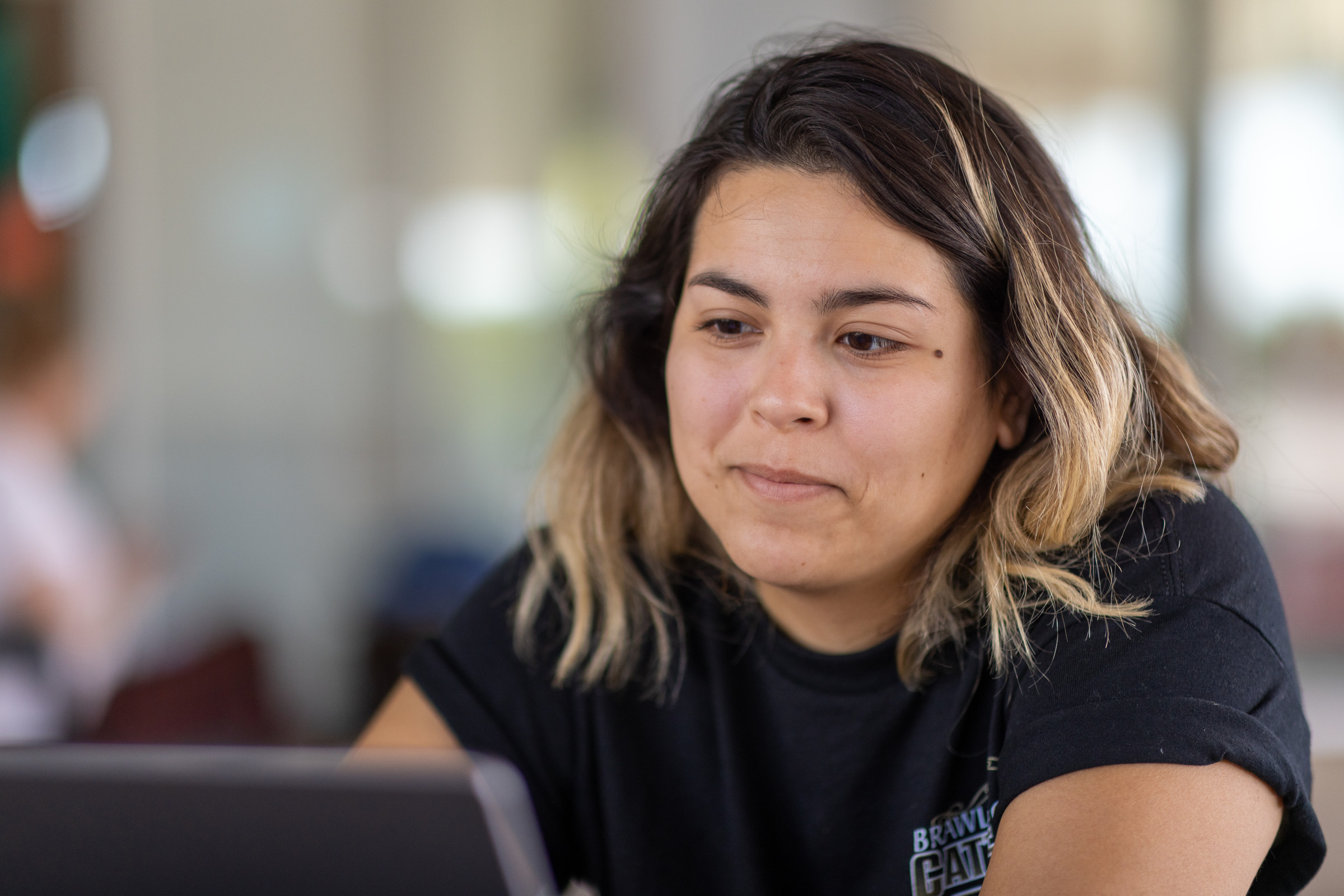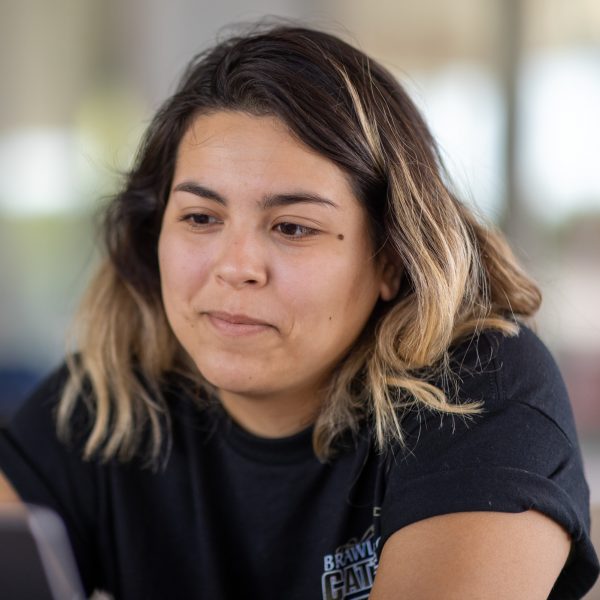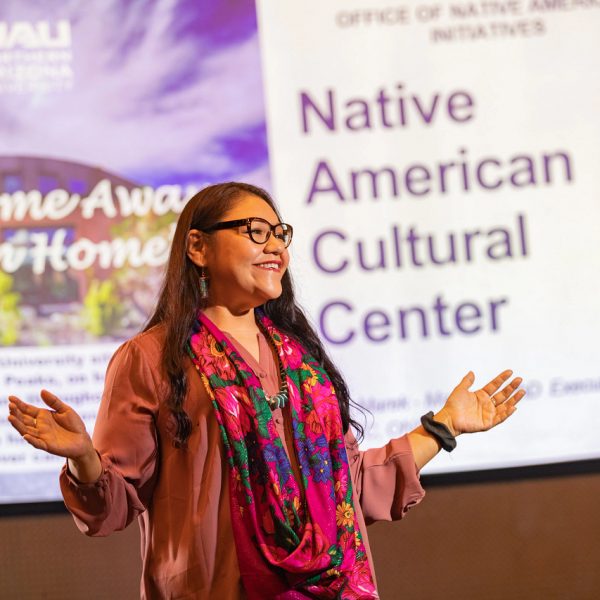
Angela Sornia’s decision to pursue a Sociology degree is rooted in the trauma of having her mother deported.
When asked why she chose a Sociology degree with minors in Spanish and US Mexico Border Social Work, Angela Sornia looks down to consider her response, which comes slowly. “I want to work with foundations and non-profits that deal with border issues,” she says. “That’s kind of where I’m leaning towards because of, well…my story.” After another long pause, she tells that story.
“When I was 14, we lived in El Centro, California. One day I had just come home, and mom was gone. And we were so confused. We didn’t know what was going on because my mom had just dropped us off at school that day. But then, when we came back, she was gone.”
Sornia’s mother had been deported to Mexico. There one minute, gone the next. It was a long time before Sornia saw her again. Her father’s strength and love kept the six siblings from falling apart. “I’ve always had an amazing dad. He’s my hero.” But Sornia herself had to grow up fast. Her life narrowed to school and caring for her siblings.
Today, Sornia is matter-of-fact about the trauma she and her family endured. “It did come as a shock,” she says, “but it happened. I live in a border town, so it happens. There are so many stories like mine. It’s not unheard of what we went through.”
Unheard of or not, the event changed her life and led her to an interest in sociology and social work at the border. After high school in California’s Imperial Valley, Sornia enrolled at NAU in Flagstaff. At first, she was happy: she made friends, participated in campus activities, and enjoyed the forest and her first sight of snow. But after a year and a half, she was missing home and having trouble making ends meet. She made the hard decision to leave Flagstaff and find another college closer to home. When she told her dad, he was having none of it.
“It kind of drew like a wedge between my dad and me,” she explains. “My dad thought that if I left such a good school that I was making a stupid decision. It kind of became, like, this issue of, ‘Why are you quitting school?’” After several weeks of discussion, the two found a solution: NAU–Yuma. It was closer to home with a more reasonable cost of living. “He was like, ‘Okay, as long as you stay at NAU.’”
It was a good decision. Without the financial stress, Sornia was able to focus on her studies. And home is just a short drive away now. She appreciates the small class sizes that allow more interaction with her instructors, as well as the student support services that NAU–Yuma provides.
“At NAU–Yuma, you can succeed if you want to,” she says. “If you take the time to look at the resources, there are plenty. There are always people willing to help you. And there are always professors willing to take the time to teach you. And here, there are a lot of people that look like me.”
Sornia plans to graduate in spring 2023 and then work at a non-profit organization providing social work services in the border region. If finances allow, she’d love to stay at NAU to pursue a master’s degree. She’ll be the first person in her large extended family to graduate from college. Her father couldn’t be prouder.






